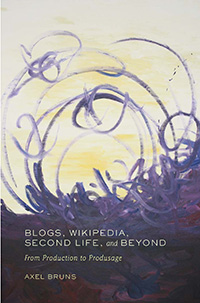You are here
Wikipedia: Some Thoughts on Inclusionists vs. Deletionists
One of the major sites of produsage which I examined in Blogs, Wikipedia, Second Life, and Beyond was Wikipedia, of course. I continue to think that relative to its major impact on how we deal with information, Wikipedia remains curiously underresearched - especially so if you consider the vast number of individual language-specific Wikipedias which exist today. That's not to belittle the work that has been done - but for a site which sits alongside Google, Facebook, and only a handful of others in a very rarefied category of real gamechangers, we simply haven't seen the amount of scholarly publications about it that we should rightfully expect to see.
From obscure Star Trek characters to German steam locomotives of the Weimar Republic, from the Theory of General Relativity to quasi-real-time coverage of unfolding events, Wikipedia has it all, usually in multiple languages - and as a colleague remarked to me the other day, like Google it's had a profound effect on us: many an ill-informed argument has been cut short by someone saying 'let's just google it', or 'let's just see what Wikipedia says'. But of course, Wikipedia as such doesn't 'say' anything: any and each of its entries is the product of sometimes protracted collaborations, debates, and negotiations between its contributors over how best to present the available information on each specific subject - and we still don't have enough in-depth accounts of the processes through which this grand project of collaborative knowledge curation continues to unfold, more or les successfully.
So, I was very happy to see Vasilis Kostakis's recent article in First Monday, covering the debate between Wikipedia inclusionists ('let's cover as much as possible') and deletionists ('let's stick to topics that are appropriate to an encyclopedia'). Even more so as Vasilis had asked me and a few other researchers as well as current and former Wikipedians to contribute their thoughts on this issue. The result is an insightful discussion of the debate itself, and its implicatios for peer governance more generally - very much worth a read:
Identifying and Understanding the Problems of Wikipedia's Peer Governance: The Case of Inclusionists versus Deletionists
Wikipedia has been hailed as one of the most prominent peer projects that led to the rise of the concept of peer governance. However, criticism has been levelled against Wikipedia's mode of governance. This paper, using the Wikipedia case as a point of departure and building upon the conflict between inclusionists and deletionists, tries to identify and draw some conclusions on the problematic issue of peer governance.
Incidentally, Vasilis's full interviews have also been published online, on the P2P Foundation Website - also worth a read:
- P2P Foundation founder Michel Bauwens, and me
- Wikipedia Review's Cedric, and MIT's Barry Kort
- Paul Hartzog, Cedric, and Michel Bauwens
All in all, a great contribution - and hopefully this will inspire further investigations into how Wikipedia works!
- Snurb's blog
- Log in to post comments
- 18879 reads
 Printer-friendly version
Printer-friendly version


